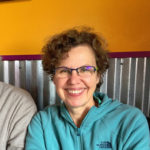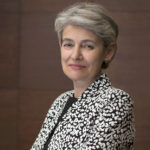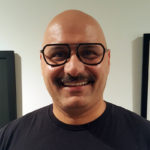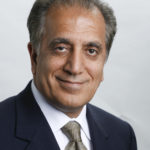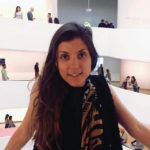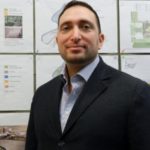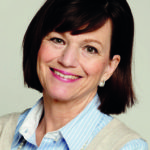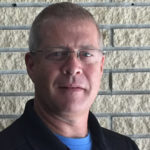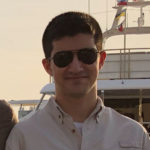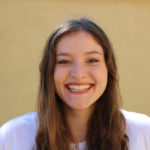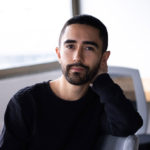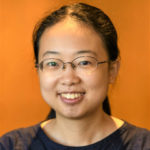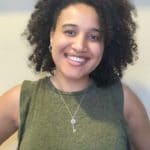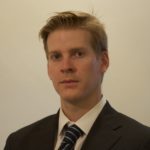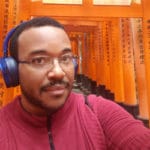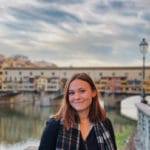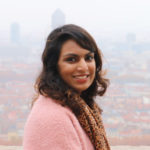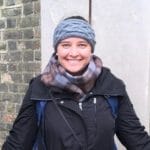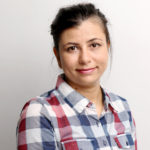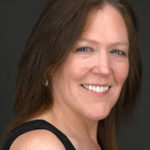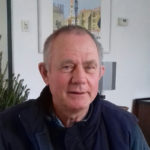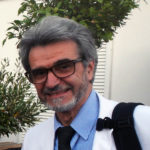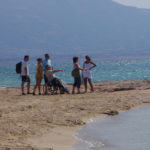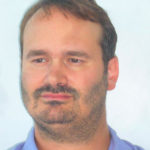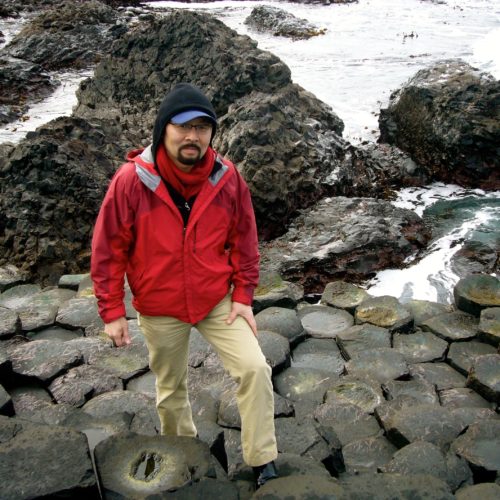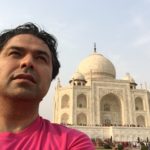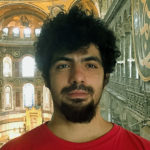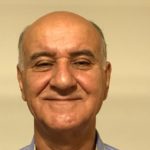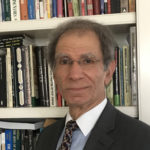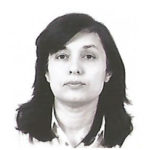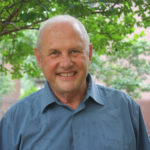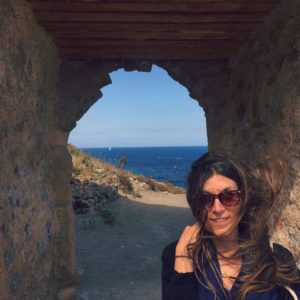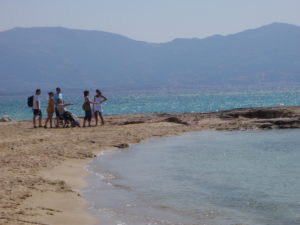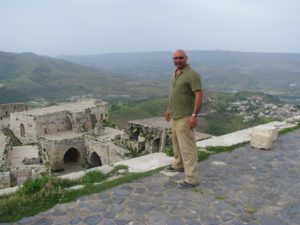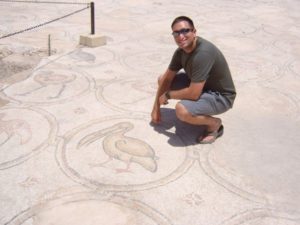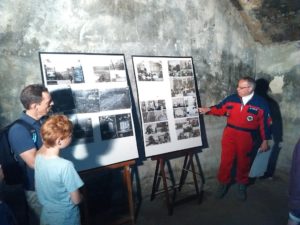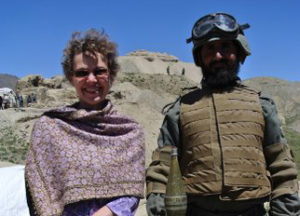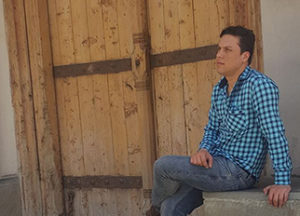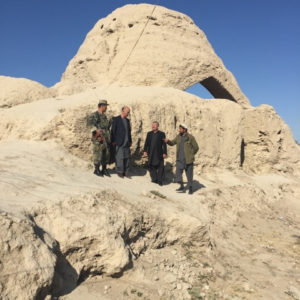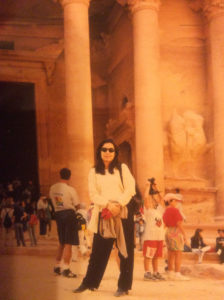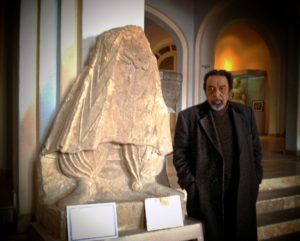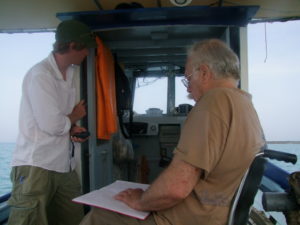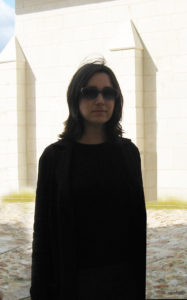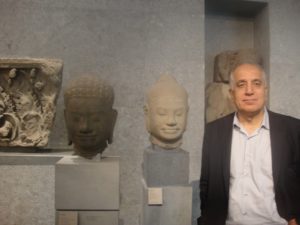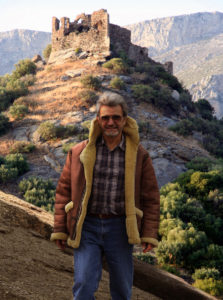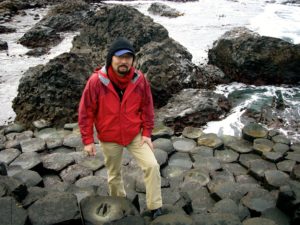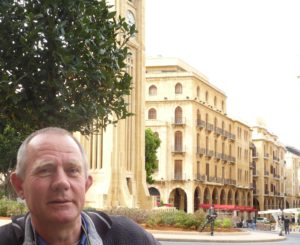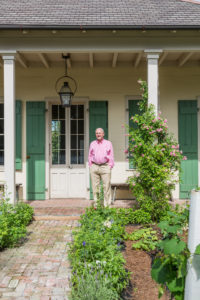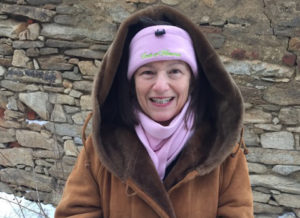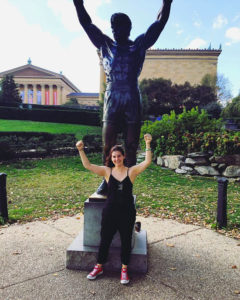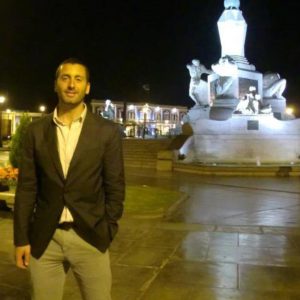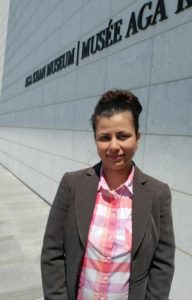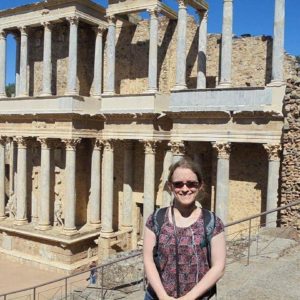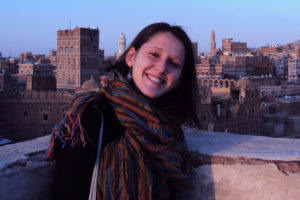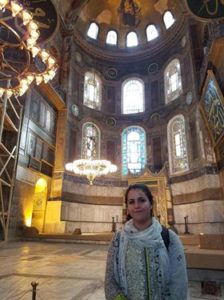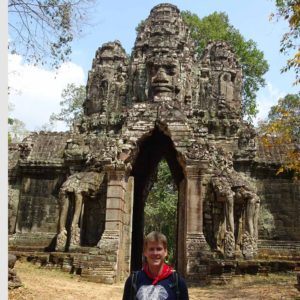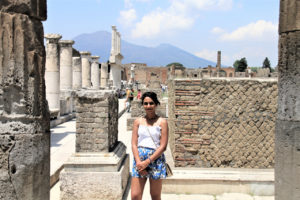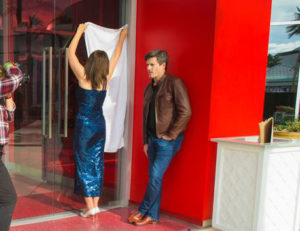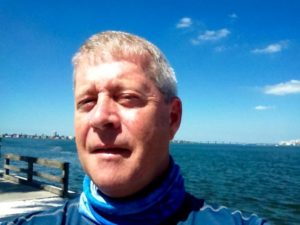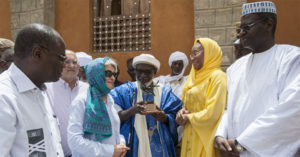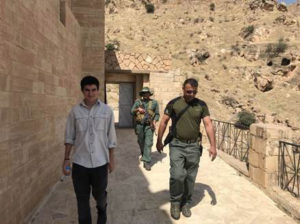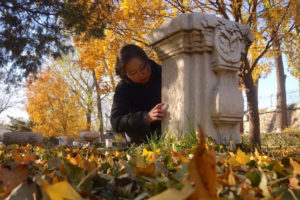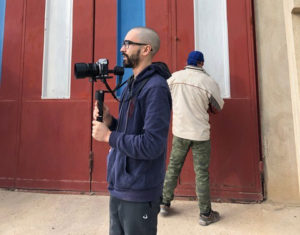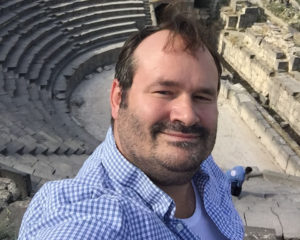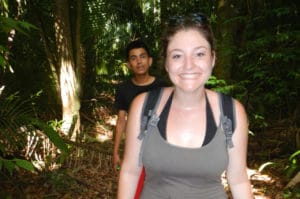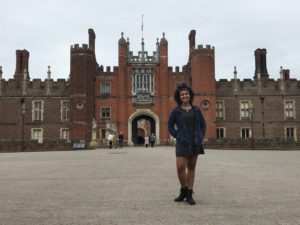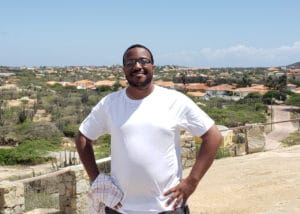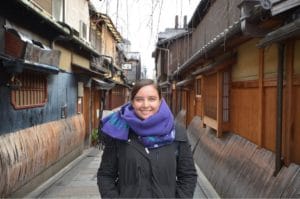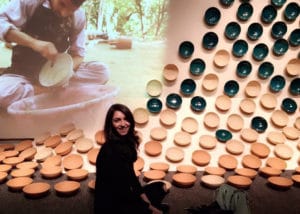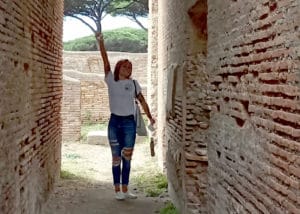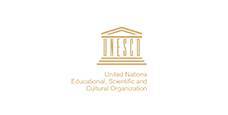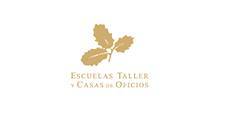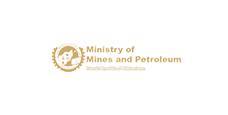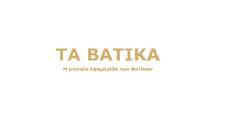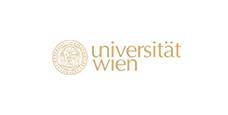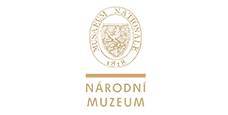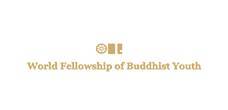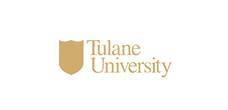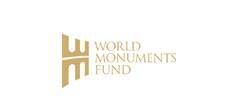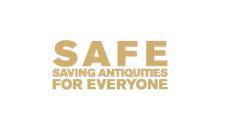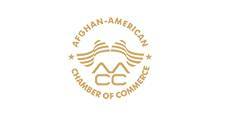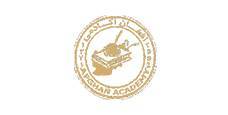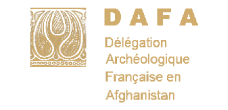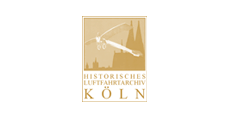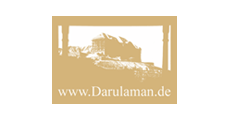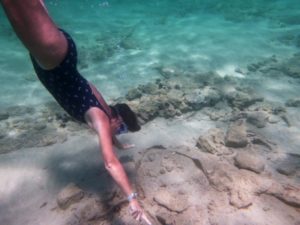

Team
TEAM MEMBERS
EXPERT NETWORK
Kathryn Costello
Photographer
Hans Curvers
Archaeologist
Dimitri Delacovias
Photographer/Art Director
Amarilda Fejzullau
Public Procurement Law
Nic Flemming
Marine Geo-Archaeologist
Seth J. Frantzman
Journalist & Author
Elin Haaga
Landscape Historian
Daniel Kobrinski
Attorney
Jeff Lee
Landscape Architect
Arsalan Lutfi
Creative Media Entrepreneur
Murat Palta
Artist
Dr. Cheryl Benard
History is a constant struggle between those who build and those who destroy. You have to decide which team you’re on.
Levi Clancy
Every person and every thing has a story to tell. All you have to do is listen.
Farhad Azima
All human beings long for a better understanding of their past. Challenges of future cannot be met without knowledge of our past history.
Dr. Zalmay Khalilzad
Culture is both our past and our future.
Adam Tiffen
Having traveled extensively throughout Iraq and Afghanistan I have seen first-hand the existential threat that exists to the cultural heritage of those nations. ARCH’s mission is to do something about it.
Yama Jewayni
I admire countries that protect and restore their heritage sites in a manner that transcends political viewpoints and modern day conflicts. Afghanistan has a rich but troubled history, and I believe the restoration of her heritage sites can be a source of healing past traumas and providing hope for the future.
Farhad Azima
Carren Mossavar-Rahmani
The sons of Adam are limbs of each other, Having been created of one essence.
When the calamity of time affects one limb The other limbs cannot remain at rest. (Saadi, Persian Poet, 13th Century)
Carren Mossavar-Rahmani was born and raised in the United States. He is a junior at Trinity School in New York City where he is the founder and co-president of the Middle East Affairs Club. He has travelled extensively in the Middle East and was appointed a research intern at the Sheikh Saud Bin Saqr Al Qasimi Foundation for Policy Research in the United Arab Emirates in the summer of 2018. His study, Sourcing Fresh Water in Ras Al Khaimah, was published by the Foundation in December 2018. Carren is also active in the Persepolis Foundation which provides programs in the arts, education and healthcare.
During a visit to Iraq’s Nineveh Province, Carren became inspired by the effort to restore the Tomb of Nahum, in which Jews, Christians and Moslems were all working together to save and preserve an important historical site. He believes that the Tomb of Nahum represents more than just cultural heritage – it also represents three important religions standing together to preserve this site against all odds, given the current political backdrop of the region. The quote he selected as his inspiration is a reflection of that spirit of community.
Dr. Marietta Ulrich-Horn
Culture is the sum of those things that enable a community to find and understand its identity and to carry it forward into the future. In returning to the roots and origins of its cultural heritage, it can adapt and renew itself with thoughtful and considerate deliberation.
Marietta was born and raised in Vienna, Austria. At the age of 16 she participated in a student exchange program, which opened her eyes to cultural diversity and the benefits of mutual learning.
Marietta holds a PHD in social and cultural anthropology from the University of Vienna, and an Executive Masters Degree in Business Administration from the WU Wien and the Carlson School of Management in Minnesota.
Her work life is focused on a multi-generational family business. In 2003 she and her husband founded a high tech spin-off of the traditional firm: Securikett® is on the cutting edge of security measures that enable retailers and customers to distinguish authentic products from counterfeit or illegally trafficked items. Counterfeiting is a widespread problem, harmful not only to the legitimate producers and the deceived users but, for example in the case of medicines, presenting an imminent danger to life and health.
Marietta also is an active member of international standardization in the areas of identification and authentication, to combat counterfeiting and illicit trade. Technical Committee 292 for “Security and Resilience” is a subdivision of ISO, the International Standards Organization.
Marietta is inspired by the goals of ARCH and is a founding member.
Irina Bokova
Culture alone is not enough to build peace. But without culture, peace cannot be lasting.
Irina Bokova was born in 1952 in Sofia, Bulgaria. She believes that her birthplace, at the crossroads between East and West, was formative to her deep interest in the interactions between cultures and communities.Bokova studied at the Moscow State Institute of International Relations, the University of Maryland School of Public Affairs, and the Harvard University Kennedy School of Government. She has also received more than 40 honorary degrees from universities in the U.S., the U.K., Mongolia, Algeria, Vietnam, Italy and many other countries, and was awarded the French Medal of Honor.
Her career in public policy began with two terms in Bulgaria’s Parliament, followed by positions in the Ministry of Foreign Affairs. Later she became the Bulgarian Ambassador to France and Monaco. In 2009 she was elected Director of UNESCO, a position she held until 2017. During her term of office, she worked with the Security Council and succeeded in achieving the adoption of two landmark Resolutions: 2199 adopted in January 2015 on the illicity trafficking of antiquities and the financing of terrorism, and 2347 from March 2017 affirming the link between the protection of heritage and peace and security.
In 2016, the newspaper The Guardian described Ms. Bokova as “the woman standing between ISIS and world heritage,” a title meant to express her extraordinary outspokenness and engagement against the devastation occurring in Syria and Iraq. Calling it “cultural cleansing”, she drew attention to the dual impacts this destruction was having: it was an attempt to erase the history and identity of entire communities, and it was funding terrorism through the trafficking of looted objects. Bokova succeeded in launching a number of U.N. programs to make combatting the latter more effective. She also worked with the International Criminal Court to ensure that its long-standing mandate to include cultural heritage destruction as a war crime, was applied and did not just remain on paper. Her background in policy and international affairs led her to recognize the significance of cultural heritage beyond its aesthetic and academic value. As she put it, “The deliberate destruction of cultural heritage is a war crime, which is used as a tactic of war, to disseminate fear and hatred. (…) Violent extremists target culture because they know it weakens the social fabric and damages the capacity for resistance.”
Dr. S Frederick Starr
Deborah Klimburg-Salter
Dr. Nic Flemming
For much of my working life, my office was underwater.
Nic Flemming was born in Stratford East London before WW2, and went to university in Cambridge in 1957 to study physics and chemistry. In 1958 he led an expedition of 8 undergraduates to Libya where they mapped the submerged Greek city of Apollonia. This led by tortuous paths to the development of new underwater technology and diving systems, the study of global sea level change, and the regional tectonics of earth movements in the Mediterranean. He has published over 300 scientific and technical papers and written or edited a dozen books. He has been a founder member and/or Chairman of the Society for Underwater Technology, the British Sub Aqua Club, the Underwater Association for Scientific Research, the Scientific Committee of the World Federation of Underwater Activities, and the International Oceanographic Data Exchange Committee of UNESCO. He represented UK at the UN Law of the Sea Conference, and was Secretary of the UK Committee on Marine Science and Technology. He was Director of the European Office of the Global Ocean Observing System. He made the first outline map of Pavlopetri in 1967, and has participated in several technical surveys of Pavlopetri in 1968, and 2008-2011.
Anthony Jones
Anthony Jones is a barrister in London, but grew up near the harbour in Sydney, Australia. Called to the bar in 2011, he practices in public law and international law, human rights, and commercial law, and frequently appears on behalf of non-government organizations in public interest litigation and advocacy before domestic, regional, and international courts and bodies. He holds a BA in Law from Oxford with First Class Honours, and a BA and MA in Classical Chinese from the University of Sydney with First Class Honours and the University Medal. Before becoming a lawyer, Anthony worked as a advisor to the Attorney-General of New South Wales and a speechwriter and advisor to the Australian Foreign Minister. He is a strong supporter of protection for cultural rights and the world’s shared heritage.
Arsalan Lutfi
Culture is a funny thing…dive into it and you’ll get immune to it.
Arsalan Lutfi was born in the capital city of Kabul, Afghanistan. At the age of 13, right at the cusp of the Afghan Civil War, Arsalan and his family left their native country to continue their education and start a new life in the United States. From a very young age, it was evident that Arsalan was a born artist. He and his siblings used their passion for the arts and creatives to start a business called TriVision. Today, TriVision is an award-winning creative marketing and media communications company with locations in downtown Washington, DC, Northern VA, Baltimore, Miami, and Kabul. As the Creative Director and Executive Vice President of TriVision, Arsalan is the driving force behind the company’s design and marketing departments. Arsalan is a multifaceted, solution-oriented, gifted leader who has managed several projects involving branding and strategic marketing campaigns for clients like the Export Import Bank of the United States, the World Bank, and the Department of Commerce. Arsalan’s passion for the arts combined with his dedication to his native Afghan culture is manifested in many projects he has been involved with over the years, positively impacted Afghan society and culture. These projects include the Afghan Songbook Project, the Afghan Women’s Rights nationwide media messaging campaign, National Geographic, Arch International, the National Gallery of Art, AUAF, Sesame Street, and many more. In addition, Arsalan is one of the founders of Tuti TV, the first live-stream television channel of its kind targeted to the Middle Eastern and South Asian audience, with the mission to promote and keep alive the indigenous music of that region which is nonetheless a major part of their culture but also fulfills the region’s need for creativity, expression and positive change.
Dr. Hans Curvers
Earlier excavations include Tell Hammam et-Turkman (1981-1986), Tell al-Raqa’i (1986-1993), Tell Umm el-Marra (1994-to date) in Syria, and excavations and heritage planning at Tibnin Castle (1999-2002) in Lebanon. In 2008 he contributed to a baseline report for the development of Palmyra (Syria). After a short period (2011-2012) as coordinating archeologists of the Mes Aynak Archeology Project in Afghanistan, he resumed his archeological heritage consultancy in Beirut. In 2012 a grant of the Deutsche Forsschungsgemeinschaft to the University of Marburg also allowed for his participation in the long-term publication project of the Beirut City Center excavations.
Elin Haaga
Karlyn Stanley
Karlyn Stanley, Senior Researcher (adjunct), and Professor, Pardee RAND Graduate School, RAND Corporation. Senior Researcher (adjunct) and lawyer at RAND Corporation, where she has published reports on automated, autonomous, and connected vehicles, among other technology-related research. She is a Professor of Law and Policy at the Pardee RAND Graduate School. Ms. Stanley began her legal career as a Trial Attorney in the Fraud Section, Criminal Division, at the U.S. Department of Justice. Subsequent to her legal experience at DOJ, she was a Senior Attorney at AT&T for five years, where she was responsible for major litigation on behalf of AT&T. She left AT&T to become a partner in a Washington, DC, law firm for eight years, where she represented and advised U.S. mobile carriers and technology companies. She was appointed Associate Vice President at Infosys Technologies, a global technology and research company based in Bangalore, India, in 2007 and moved to New Delhi, India, in 2009 to become Director-Legal Services for CPA Global, a UK-based technology and research company. She joined RAND in 2012. She has served as pro bono General Counsel for ARCH, Inc. since 2011.
Murat Palta
Being proud of your culture and your heritage means also respecting that others have the same feelings of pride and attachment towards theirs. This doesn’t mean conflict. It enriches all of us.
Murat Palta was born in 1990 in Antakya, better known to the world as Antioch – the famous Silk Road city dating back to the fourth century BC. In this southernmost part of Turkey, next to the Syrian border, he grew up with many influences from varied cultures, religions and ethnic groups. After graduating from Dumlupinar University in Kütahya, an area known for its traditional art and ceramics, he decided to highlight his multicultural background through the medium of art. Ever since he’s been working as an illustrator, and his hallmark is a quirky mixture of Ottoman/Persian traditional art with modern elements. His poster series of Hollywood blockbusters transformed into Persian miniatures brought him international attention. For ARCH, he shines as the illustrator of our Storybook Series.
Dimitri Delacovias
The failures of the present and anxiety for the future are directly proportional to our failures to learn from history and respect our past heritage.
Sophia A. Schultz
Wouldn’t most of us wish to leave something behind on this planet, a creation of some sort, a legacy or a diary? I think heritage sites embody this fingerprint someone has left here for us. A feat of beauty of another time that managed to stick around for thousands of years – still here to fascinate and move us.
Sophia Schultz grew up in the Baroque district of the small town of Kirchheimbolanden in South-West Germany, in a house that was built more than 200 years ago. Her journey into a career in cultural heritage began with her interest in contemporary art and the Middle East. After studying Cultural Sciences at the European University Viadrina close to Berlin, she began publishing in art catalogues and worked on political contemporary art and film projects. Her involvement in ARCH’s first project – the Bamiyan Project – began while she was a Middle East Politics postgraduate at the School of Oriental and African Studies in London.
Sophia has always admired the “troublemakers”; the people who courageously stand up for the greater good of humanity. In working to protect our shared history, she looks for the emotional connections to the past, and the universal experiences found within them. Sophia’s imperative is to communicate these personal stories to a wider audience, to foster a broader idea that we all share responsibility and ownership for the world’s heritage.
Megan Plaumann
“If we lose our cultural heritage, we lose sight of who we are today, and who we become
in the future.
William Humphrey
The beauty of cultural heritage shines in the safeguarding of our talents, memories, and wonders.
William’s ARCH projects include the drafting of a Handbook for Controversial Monuments and Statues, the compiling and presentation of Afghanistan’s cultural heritage, and the future generation of storymap content.
Hannah Clevenger
I am fascinated by how individuals and organizations around the world are working together, to protect and educate others about cultural heritage of all types.
Pursuing her interests in material/visual culture and cultural heritage in her academic career, she has a B.A. in anthropology from Sewanee: The University of the South, and an M.A. in applied anthropology and museum studies from the University of Memphis. In her work with ARCH, she assists with expanding community connections and publicizing and collecting information for ARCH’s initiatives, “Citizen Historians” and “Culture Heroes”. Building off of this work, she is also assisting with keeping the ARCH website and blog up-to-date, both of which provide visitors with vital information about ARCH’s projects and mission.
Kathryn Costello
Culture is both a gift and a responsibility.
Kathryn Costello was born in Detroit, Michigan and spent most of her childhood in New England. She studied at the University of Massachusetts, graduating in 1988, and followed up with graduate coursework at Harvard University’s Extension School, with a focus on multi-media design, education, web design and psychology. Her first job was as a youth counselor, organizing programs in a shelter for homeless teenagers in New York City. Later, she worked in a number of capacities for Harvard University, at the Kennedy School of Government as an editor and for the Museum of Comparative Zoology where she led tours, supported educational programs and helped set up expeditions to Greenland. In 1994 she began to focus on project management and web design. Currently, she runs her own business for photography, graphic design and web development.
Kathy assists ARCH as a key member of its expert network. She manages the ARCH website, and also designed the popular “Wall of Shame” feature that publicizes endangered sites and structures and highlights the efforts of groups and individuals to rescue them. For the ARCH project “Stand With Nineveh,” she is creating a comprehensive photo documentation and materials for outreach and future tourism.
Veronica Scroccaro
There is no future without past and our past is our culture. To respect cultures and to protect what remains of it will make up a bright future.
Veronica will soon graduate from the University of Leicester in Risk, Crisis and Disaster Management as she believes in the active and reactive protection and the safeguarding of cultural heritage as an imperative for humanity and for the generations to come. She hopes that collaborating with ARCH will give her the opportunity to contribute in meaningful ways to this goal.
Sara Fatimah
What we learn from cultures and indigenous knowledge is a truth that science could never replicate.
Adi Paliti
It is not political correctness to recognize the sensitivities of the particular customs, histories, and expressions of beauty unique to every culture. It is common human decency and an expression of our own thirsts for knowledge and understanding, crucial for fostering respect and empathy.
Dr. Lola Vico
We can only preserve what we know. That’s why the study and sharing of knowledge about cultural heritage are essential to its protection.
designing, implementing and assessing cultural heritage preservation and promotion programs, and developing multidisciplinary curricula for stakeholders engaged in historic heritage conservation and related economic activities. She employs novel approaches to documenting and managing cultural heritage, using advanced digital tools and virtual reality modelling. Lola also brings expertise in structural and historical analysis of ancient architecture and construction theory, and their application to conservation. She has co-authored more than 30 scientific publications.
Hannah Brandt
John Conley
Barbara Euser
Pavlopetri is important to the entire world. We are the local stewards of the site, with the responsibility to preserve, protect, and promote it, so we may learn what it has to teach us – and our children.
Zhihang Du
My life is infinitely extended by cultural heritage.
Werner Müller
History is exciting and entertaining!
Werner Müller was born in the old German city of Cologne. After four years in the German Air Force, he worked for German television in technical network marketing and as a production manager and line producer. Because of his interest in aviation, he began to explore the rich aviation history of his hometown Cologne. What started as a hobby gradually became an obsession! Werner frequently gives lectures, writes articles and organizes tours and exhibitions on the subject. He also runs a major archive with rare historic items, and maintains a very informative website on the topic.
As a proud citizen of Cologne, he is actively engaged in building out a stronger lobby for cultural heritage integration in modern city planning. A developer once told him, “we have the cathedral and that’s enough” – Werner definitely does not agree. The issue is in his DNA – Werner’s great-grandfather Wilhem Rieck was a member of the German expedition dispatched to build the Darulaman Palace in Kabul, Afghanistan in the 1920s. Werner is always open to collaborate with like minded people and has been a valued close partner for ARCH for several years. He has been a central force behind the Wall of Shame initiative, and always keeps issues concerning Germany’s treatment of its cultural heritage on our radar.
Ahmad Sawiz
Culture is what we inherit from our ancestors.
Sherzad Mamsani
Magdalene (Magda) Sotirianos
Pavlopetri should be cherished and appreciated for it is truly remarkable.
Born in South Africa but both her parents come from Laconia. Magda holds 2 Bachelor of Arts degrees, one in English Literature, the other in Interpreting and has been working as a freelance conference interpreter since 1992. Her working languages are Greek, English, and Dutch. Magda is actively involved in the protection of Vatika Bay which has been so adversely affected by the anchoring of ships which started almost 15 years ago. Vatika Bay is home to loggerhead turtles which come every year to lay their eggs on the sandy beaches. The coastal area is part of the Natura 2000 network of the European Union and although it should be protected it is not as it has no Management Body. Tractors and quad bikes zoom over the sand dunes crushing the endangered sea daffodils and creating a death trap for turtle hatchlings which get disoriented and die of exhaustion. Pavlopetri, the oldest submerged city in the world also lies in the shallow waters of the Bay between the island of Elafonisos and the shore on the mainland. So far the shipowners have been able to enter the Bay and anchor their ships, the aim being not just to acquire provisions but also to engage in polluting activities. Magda is an active member of the Greek Chapter of Arch International which is trying to protect Pavlopetri and Vatika Bay. She has helped in many of the efforts to promote sustainable tourism in the area (raising funds for the restoration of the Aghia Paraskevi Castle) and is a true nature lover.
Saiesha Pitroda
By having a greater understanding of culture and its link to identity, we can understand each other better.
Saiesha is from London, the United Kingdom where she studied French and Journalism before starting work as a Marketing Executive for an IT Consulting and Project Management firm in 2014. She started illustrating in her spare time in 2016, where she has since worked on two interesting and important projects with ARCH International. Despite working in a very technical sector which is heavily involved in building the future, Saiesha has always had an interest in languages, history, cultures and identity.
Jeff Lee
The greatness of civilizations is measured by the quality of their public realm.
President of Lee and Associates, Inc. headquartered at Gallery Place in Washington D.C. He received the Presidential Citation from The American Society of Architects: AIA, for leading the design team for The Pentagon 9-11 Memorial. In 2007, he was inducted into The American Society of Landscape Architects Council of Fellows; this is the highest honor achievable in the profession and he is the first Korean-American landscape architect to receive it.
During the past 25 years, he has crafted a body of work which integrates the complex relationship between man and nature to design ecological and sustainable solutions promoting responsible stewardship of our land, waterways, cities, gardens, parks and ultimately, the public realm. His focus on beauty and function along with a deep commitment to history and culture of natural and built places has produced many unique, award-winning projects in the U.S. and throughout the world. These have included the Cultural Tourism Master Plan for two centuries of Buddhism in China(Dazu); connective spaces for the Hajj(Mecca); and the bringing to renewed life of a historical Ottoman Pasha’s Palace(Ciragan Palace Kempinski, Istanbul).
Lee was a scholarship student at the University of Virginia in the School of Architecture in landscape architecture, fine arts, and architecture. After working in Seoul, Korea; Doha, Qatar and on projects throughout Asia and the Middle East, he returned to the U.S.A. to launch his career in landscape architecture. He started his own firm in 1987 with high profile projects including the Finnish Chancery; The Korean Embassy Residence; The International Culture & Trade Center at the Ronald Reagan Building; Fort Belvoir Community Hospital; and the recently completed City Center. Lee serves on the Board of Managers for UVA Alumni Association; Council Member of FONA(Friends of the U.S. National Arboretum) and is a former Vice Chairman and Life member of The Committee of 100 on The Federal City, an organization founded in 1923 to safeguard and advance Washington’s historic distinction, natural beauty, and livability.
Dr. Sarajuddin Rasuly
Preserving and rebuilding their ancient heritage could help unify the Afghan population by giving them a deeper understanding of how much they share and what great things they are capable of accomplishing.
Rasuly studied political science and pedagogy in Austria and Germany and taught in the Political Science Department of the University of Vienna for fifteen years. Currently, he works as an expert witness for issues pertaining to Afghanistan at the Austrian Federal Administrative Court. He is the author of two textbooks about political transformations in Afghanistan and about the role of Afghan political elites.
Saraj – as his friends call him – has served on several UN and local committees involved in the Afghan peace process and in humanitarian aid.
Andrew Harris
History is messy, culture is messy, live with it; the big picture cannot be defined by modern borders. Strip those away and you have what the past was – keep them and you have what others want it to be.
Andrew Harris grew up in Toronto, Canada, a city known less for its history than its push towards the future (as well as an intoxicated former mayor, the rapper Drake, and an ice hockey team that hasn’t won a championship in more than half a century). History teachers in middle- and high-school influenced his love for the past, ancient ruins, Buddhism, architecture, and archaeology, and bth a Bachelors at Queen’s University and an MA at the School of Oriental and African Studies got him thinking about historical trends, patterns, putting the pieces together.
Currently finishing the fourth year of a PhD in Anthropology at the University of Toronto, Andrew works primarily exploring the placement and significance of monastic architecture from the 14th-16th centuries at the ancient Cambodian capital of Angkor Thom. His research entails mapping, survey, excavation, photogrammetry (3D modelling), and spatial analysis to better understand the ways that religious populations interacted with significant ritual spaces over time transcending specific religious affiliation. Andrew has also worked in the auction world, cataloguing and aiding in the sale of Chinese ceramics and jades. Andrew works on the Bamiyan project for ARCH designing historical theme-based “tourism routes” for future implementation in Afghanistan.
James Wright
Heritage is a bridge connecting our past with this moment in the present. As its stewards we are obligated to maintain that bridge even as we build a new one for future generations.
James Wright is a graduate student in Cultural Heritage Management at Johns Hopkins University. He has a background in maritime heritage and submerged cultural resources, and has worked on projects with the Florida Public Archaeology Network, the Lighthouse Archaeological Maritime Program in St Augustine Florida and the Maritime Archaeological Historical Society in Washington D.C. James currently works on the Pavlopetri project, maintaining a database documenting commercial shipping in Vatika Bay.
Bishop Juan Carlos Mendez
History and culture go hand in hand and we must work to preserve our world heritage for our and future generations.
Bishop Juan Carlos Mendez was born in Guatemala and migrated to Los Angeles, California, in 1976. He has been an advocate for social justice for over 30 years. Juan Carlos began his career in social engagement as an educator. After graduating from Vanguard University in 1990 with a degree in Theology and Liberal Arts, he completed two additional degrees: Multicultural Education & Public Administration, and a Doctorate in Educational Leadership. In his early career years, he served as a K-12 teacher and administrator at different high schools in Los Angeles, where he was confronted daily with issues of gun violence, drugs, gangs and poverty.
Bishop Mendez was ordained in the Assembly of God denomination, and has served in numerous capacities during his ministry. As founder and president of Churches for Action, he oversees a coalition of 2300 churches, who mobilize on behalf of the destitute. He has founded 40 churches, including the “Dream Center”, formerly Bethel Temple Los Angeles; heads the Annual Mayor’s Inter-Faith Prayer Breakfast in Los Angeles; and is frequently called upon to speak at national and international leadership conferences. Bishop Mendez is a strong presence in the media. For several years he was the host of the Spanish language radio show “Guerreros del Tercer Milenio” which aired twice daily and reached several million listeners.
Hamid Naweed
Historic sites are like a mirror, an honest picture, of ancient cultures.
Freshta Sediqi
Preserving the past for the future.
Freshta Sediqi was born and raised in the multi-ethnic ancient city of Kabul in a literate family. She attended school during the civil war and after the collapse of the Taliban government, she was one of the first women who sought a higher education at Kabul University.
She holds a B.A. in Languages and Literature from Kabul University and a M.A. in Applied Linguistics from Purdue University of the United States. Her research focused on World Englishes, Applied Linguistics, Sociolinguistics, Literature, Language Acquisition, and Creative Writing Studies. She also holds a Diploma in Social and Community Studies.
Freshta has worked alongside many educational institutions in various roles such as university lecturer, academic advisor, political organizer and linguist. Throughout her academic life she has always been part of capacity building in assisting and improving language teaching/learning. She hopes to make a difference for communities, and in her current role as Credential Evaluator at World Education Services (WES), Freshta has been involved in helping new immigrants in their journey of settlement, integration, and career development in Canada.
Being a linguist, Freshta sees a strong connection between language and culture. She hopes that being part of ARCH will give her a chance to explore other cultures and an opportunity to protect her home country’s cultural heritage.
Dr. Seth J. Frantzman
To preserve the future we must protect the past. A keen and dedicated respect for cultural heritage is essential to a humanity that continues to face threats to the foundations of our many shared civilizations.
Dr. Seth J. Frantzman is author of After ISIS: America, Israel and the Struggle for the Middle East (Gefen, 2019), and executive director of the Middle East Center for Reporting and Analysis. He has reported from and conducted research in Iraq, Turkey, Jordan, Egypt, Israel and the UAE. A former lecturer at Al-Quds University on US foreign policy, he has a Ph.D. from The Hebrew University of Jerusalem.
A veteran reporter and analyst for The Jerusalem Post, The National Interest and Defense News he has covered three Gaza wars, rising tensions with Iran and the war on ISIS. Frantzman was born in Maine and received his B.A from the University of Arizona. Follow him on Twitter @Sfrantzman
Shou de Zhang
After a conflict, we have decisions to make. To use the remainder of places left as a divisive tool to tell stories to continue haunting our peace, or we can use them as a space for healing and dialogue.
Shou was born in Qingdao, People’s Republic of China. It is where he spent the first eleven years of his life before moving to the United States. The pursuit of education carried him across two oceans, first to Japan, then to the Netherlands, where he is a graduate student at Wageningen University & Research studying MSc Tourism, Society and Environment.
His journey around East Asia revealed to him the incongruent narratives of continuing past grievances that tourism sites share with visitors. When a person from one country visits another, how will they perceive these narratives that leave out or plainly reject the stories they grew up within their own country? What will happen to the relationship between the descendants whose parents or grandparents bitterly fought against one another? Shou thinks it is one of the most tragic things in the world when despite being in a different time with a new generation, we still allow conflicts of the past to pit us against one another, divide us, and robbing ourselves of hopes and ambitions.
Daniel Kobrinski
Cultural heritage is a bridge in so many ways, not just between past and present within a particular society, or between different societies and countries, but also as a personal bridge between one’s own past (their family history and cultural narrative), and one’s own personal identity.
Daniel currently lives in Israel and works as a legal adviser for an international art museum in Jerusalem. He has worked with artists, archaeologists, art experts, and cultural figures from among the diverse spectrum of cultures present in Israel – not only Israeli and Palestinian, but also European and Middle Eastern Jews, Muslims, Christians, Ethiopians, Bedouins, Armenians, even Sudanese. His work in the field of art law is motivated by not only promoting art and heritage as an educational tool to preserve cultural identity, but also as a way to see the common humanity and history that intertwines and connects all of the cultures in this country and region.
Ella Erzsébet Békési
Understanding people, personal histories and aspirations linked to heritage places is essential to get a better picture of the contemporary role of archaeological and cultural sites. Working with people first and foremost helps us develop sustainable and functional conservation plans while encouraging cultural continuity.
Ella was born and raised in Budapest, Hungary. She then studied Archaeology and Cultural Heritage at University College London in the United Kingdom. She worked as an assistant in public and commercial archaeology as well as in the heritage sectors in the United Kingdom and Central America. Ella participated in the Lamanai Archaeology Project (LAP) in Belize, and has been assisting branches of the Belizean National Institute of Culture and History in numerous projects.
Throughout the years, Ella witnessed the effect of social and economic issues related to archaeological and heritage preservation. She developed an interest in heritage education and inclusive and sustainable archaeological and cultural heritage preservation through tourism in Latin America.
There is a growing concern to care about cultural, natural and social impact while travelling, so Ella founded Craboo Creative Travel as a collaboration between archaeologists, highly skilled tour operators, artists, artisans, national tourism organizations and NGOs to create heritage tours. Craboo Creative aims to provide economic support for local businesses and to create a place that nurtures new tourism and heritage initiatives while fostering cultural and natural heritage preservation.
Mordechai Zaken
Dr. Mordechai (Moti) Zaken is an expert on the Kurds and Middle Eastern minorities, both by academic training – he is a historian of the Jews, the Kurds and the Assyrian Christians in Kurdistan, and by professional practice. He served as the Israeli Prime Minister Benjamin Netanyahu advisor on Israeli Arabs and minorities during his first term (1997–1999), and has been serving as advisor in the Ministry of Public Security from 2001. In 1993, he founded the Israeli-Kurdistan Friendship League, possibly the first and only friendship association between Jews and the Muslim community in an Arab country, together with Moshe Zaken and Meir Baruch. For his major study “The Jews of Kurdistan” he researched the heritage of Jews born in Kurdistan, Iraq, through first hand oral history interviews. Moti is a member of ARCH’s Stand With Nineveh Expert Advisory Committee.
Oksana Yavorska
Culture is a cornerstone of a nation.
Oksana was born in the western part of Ukraine, in a small town of Pidvolochysk. She spent her childhood in this historical place, which once was a border town between the Austro-Hungarian empire and the Russian empire. She tried to preserve the story of Pidvolochysk and its citizens by producing a documentary movie about it.
As for education, she received her bachelor’s degree in Kyiv and master’s degree in Vienna. In January 2022, Oksana graduated from the Lauder Business School in International Management and Leadership. She was about to start her European career when the Russian military invasion of Ukraine happened. Oksana became a volunteer at the Ukrainian Greek-Catholic Church of St-Barbara in Vienna and helped with coordination of the volunteering efforts. Afterwards, she helped to organize a Ukrainian library for refugees and to staff it with more than 1000 books.
Oksana is passionate about Ukrainian culture, history, traditions, and she wants to introduce this heritage to the international community. She also emphasizes that Russians deliberately destroy Ukrainian historical sites and buildings, robe national museums and even steal Ukrainian dishes like borscht, because they know that without culture there is no nation.
Maurice Shohet
Maurice was born and raised in Baghdad. Fled Iraq with his family to Iran in 1970 during the rule of the Baath Party.
In 2004, he visited Iraq for the first time since his escape from the country for the purpose of encouraging Jewish tourism to Iraq through the restoration of the tombs of Jewish prophets in the country; but the security situation was too dangerous to pursue that goal. In 2005, he participated in the preparations and management of the First Iraqi elections for the expatriates Iraqis in the U.S., and was among the 9 Iraqis that met President George W. Bush at the Oval Office in March 2005. In December 2007, he met President Bush at the White House again, this time with 15 other Jews from different countries including the U.S. as well as Holocaust survivors, and raised with the U.S. president the issue of the rights of Jews from Arab countries. Two weeks later President Bush raised this issue with the Israeli Prime Minister at the time Ehud Olmert.
Maurice was a member of the Committee of Experts that evaluated the “Iraqi Jewish Archives”. He is the President of the World Organization of Jews from Iraq (WOJI), whose goal is to protect, preserve and promote Jewish communal assets remaining in Iraq including holy sites and shrines. He works at the Washington Institute for Near East Policy and lives in Washington, DC.
Elimarie Garcia-Cosme
Cultural heritage, both tangible and intangible, touches on all aspects of life and I feel obliged to do my part in preserving it for generations to come.
Born in North Carolina and raised in Texas by Puerto Rican parents, Elimarie was always reminded of the importance of embracing the cultural traditions and heritage that shape your everyday life. Summers spent in Puerto Rico with family exploring Old San Juan inspired a passion for cultural heritage preservation and the connection of the past to the present through monuments, traditions, language, etc. She enjoys learning the history and culture of places she visits and how this history influences today’s world.
She holds a BA in Anthropology from the University of Texas at San Antonio and a MA in Anthropology from the University of Central Florida in the United States. She also holds a MA in Cultural Heritage Studies from the University College London in the United Kingdom. Her MA research topics focused on the archaeology of lowland Bolivia and cultural expressions of Eastern Cuba, respectively. Throughout her studies, Elimarie worked towards building an understanding of the importance of safeguarding heritage across the globe. In her work with ARCH, she is in charge of expanding the Wall of Shame (WoS) project and spreading the word about sites in danger of destruction. She hopes that by volunteering with ARCH, she will be able to grow the WoS to be a platform for people to work together to bring attention to the heritage sites they care about deeply.
Melissa Metzgar
Culture and creativity are ingrained parts of humanity, and therefore as human beings, I feel as though we have an obligation to preserve the world’s cultural heritage in all its forms.
Melissa Metzgar grew up in the greater Philadelphia area of Pennsylvania. Her journey into the cultural heritage field began during her undergraduate studies at Kutztown University, from which she holds a Bachelor of Arts degree in Art History and Anthropology. During Melissa’s undergraduate studies she served as a social and behavioral researcher, a gallery director, and digitally cataloged the archives of the Missionaries of Africa in Rome.
These experiences led her to pursue her post-baccalaureate studies at John Cabot University, where she completed a Master’s in Art History and wrote her thesis on the fresco paintings decorating a looted ancient Etruscan tomb. Over the years, Melissa discovered an immense passion for fostering and preserving cultural heritage, and currently, she is pursuing a Master’s degree in Sustainable Cultural Heritage. Her graduate research focuses on managing heritage in conflict and the efficacy of US laws in combatting illicit antiquities trafficking.
Asma Faraz
Cultural Heritage represents our community’s identity, and it is a bond between past, present and future.
Amarilda Fejzullau
Without heritage, we have no identity
Amarilda was born in Belsh, a city where the seafaring Illyrians resided in the Early Bronze Age. She received a Master of Science degree in Civil Law from the University of Tirana and subsequently worked as a corporate lawyer in Albania.
Currently she resides in Vienna, where she is pursuing a second master program in European Studies/Management of EU Projects, and in October she will start a Master of Laws in European and International Business Law at University of Vienna.
As a child, she was passionate about history and always wanted to learn new things about it. She loved meeting people from different cultures and she would “interview them” with her own cultural questionnaire.
Later, she was able to apply her interest in culture and heritage through her work as a Public Procurement Lawyer for a construction company. There, she was part of several implementation projects with focus on culture and heritage sites, including the restoration of the Old Bazaar in Gjirokastra (funded by the Albanian Development Fund).
In the future, she wants to continue raising awareness for the protection of culture and heritage sites.

